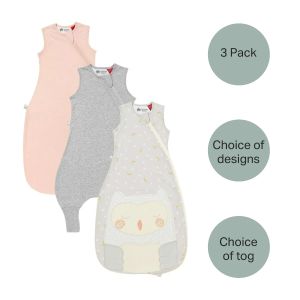
Parent Diaries
"We have been wanting to do a miscarriage awareness post for a while and could never bring ourselves to do it, but we now feel strong enough..."
Miscarriage: Sarah's Story
Warning, this post contains details of miscarriage that some may find difficult to read.
"We have been wanting to do a miscarriage awareness post for a while and could never bring ourselves to do it, but we now feel strong enough and as this is Baby Loss Awareness Week, I think now is the right time.
Sadly, miscarriage is very common and occurs in one in four pregnancies.
We have been extremely unlucky and have suffered four recurrent miscarriages. Three in the space of 13 months and another just recently. Miscarriage isn't spoken about and is seen as a taboo subject; people don't know how to respond or what to say which is understandable because it can make people feel uncomfortable. So, I think this is why many people suffer in silence which can cause huge mental health issues.
There are lots of parts to a miscarriage, one of which is the physical side. I think this is important to talk about because this is the part that people find most disturbing and it’s something that both my partner and I have never discussed with anyone. I will talk about our third miscarriage here as this was probably the worst physically. We were told that we had lost the baby and therefore have to have a managed miscarriage, where you have some tablets to help you pass it. Let me just say that the pain was insane, my tummy was contracting to get rid of the baby, I couldn't move and just had to wait for my body to do its job as well as the bleeding and there is a hell of a lot of blood with some miscarriages after all the blood eventually our baby came out on the toilet.
It was a very strange and hopeless feeling as in this situation your mind has no control over your body, and you push out a baby that you so desperately wanted. It felt like it slid out of me so easily after the hours of agony I went through. As this was our third miscarriage, our "pregnancy" had to go away for testing, this is called Karyotyping. So, we had to fish our baby out of the toilet and put it into a Tupperware box and keep it in the fridge overnight; the Early Pregnancy Unit (EPU) is not open at nighttime. I'm sure you can understand just how distressing this was, and words can't describe the feeling as you lay in bed with your dead baby in your fridge.
I will discuss the first miscarriage now as this helps explain further the physical toll it has on your body.
We got pregnant the first time we tried, and it felt a little too good to be true. Sadly, that was the case for us, and we had a missed miscarriage, which is the most common type of miscarriage. We went for a scan and learned that our baby had no heartbeat. As the baby didn’t come out naturally, I had to have a dilation and curettage (D&C) which is a procedure to remove the baby from inside your uterus. This is an invasive procedure and can leave you with some pain.
A missed miscarriage is awful because you’re having all the right and normal pregnancy symptoms but all the time knowing that your baby is gone. It’s like your body is teasing you as you are having these symptoms knowing there would be no baby at the end of it.
Another part of miscarriage is the mental health part.
All four miscarriages have been mentally draining and exhausting. Depression and anxiety are unintended and inevitable results of miscarriage. Just like the physical side, you have no control over the mental side. For myself, anxiety pretty much rules my life and has just become an everyday feeling I have to deal with. Some days I can feel massively depressed and struggle to get out of bed and motivate myself to do anything. And other days I feel very positive about the future, but it never truly leaves me. When you’re around people you naturally act fine and happy. People ask you how you are and you automatically say 'I’m fine'. I just want to put across that although people seem ok and happy, it doesn’t mean that they’re not suffering, it’s always on their mind.
A very important part is your other half. In my case my husband. I want people to understand that they suffer too, they also go through depression and anxiety as well as have the job to support and look after the woman going through it. I must admit that the way we were treated during some of these miscarriages was disgusting and the staff were unbelievably unsympathetic towards both of us, however not one member of staff directed what they were saying to my husband, and he was ignored throughout the whole process and might as well not have been in the room. This adds so much more distress to an already exhausting and heartbreaking situation to be in. Even though I was physically going through this my husband was going through this traumatic experience with me. It’s just as heartbreaking for the other person in the relationship as they lose their baby too.
Many people suffer from triggers after they have a miscarriage and certain things can cause an intense and negative emotion, for example social media posts, a baby crying, adverts, tv shows, conversations and certain questions.
I want to make it very clear - it's never ok to ask any woman or man 'when are you going to have a baby or start a family?' Or anything remotely like that. You never know people's situation. These questions are massively offensive and can be huge triggers.
Here are some things you should never say to people after they've suffered a miscarriage:
- At least you can get pregnant
- You’re still young
- At least you weren’t further along
- You can try again soon
- There must have been something wrong
- Did you do something you weren’t supposed to?
Don’t ever say something that could be taken as if the mother is to blame.
It's nothing the woman has done; miscarriage is annoyingly mysterious and most of the time, there are no answers.
Most responses come from a kind place and it’s just people who care about you who want to help but don’t know how.
We don't want people to stop having conversations about their pregnancies and babies because we understand that it's a happy time and when people purposely don't talk about it, it just creates more awkwardness. Just simply be aware and sensitive.
If someone you know has suffered a miscarriage and you’re not sure what to say, there is loads of information online that can help you understand more about how to help them and what to say.
Lastly, please be patient with people who have suffered. Sometimes they might not want to talk about it and sometimes they might. Sometimes they might seem happy and sometimes they might seem exhausted and bitter. They are grieving the loss of their baby or babies no matter how far along they were. Remember that these women were pregnant, they had symptoms, they connected with their baby, they had plans, and they dreamed of them. And now they grieve.
We've written this to create awareness and to help people speak out about their miscarriages.
Don't suffer in silence, because miscarriage is not taboo; it happens every day.
To all mums and dads who have desperately wanted a family for years but for whatever reason haven't got there, this is for you. Sending you love and best wishes. From a mum and dad of four angel babies."
If this content reminds you of your own experiences or makes you think of someone you know and you feel concerned or uncomfortable, please head to our support page for information about perinatal mental health resources that may be able to help.












